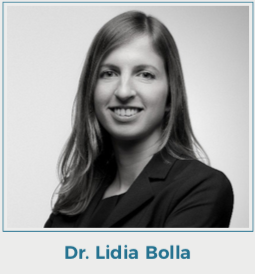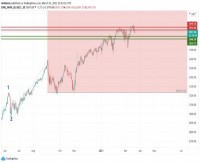|

Digital assets are the new technology slice of portfolios, in addition to shares in tech companies. Family offices are making small investments in digital assets to test the waters, and these digital assets are usually backed by something they know: real estate and fine art. Furthermore, even if digital assets are novel, you do not need to pay for them with novel currencies. Your regular currencies will do. And your bank will likely have the infrastructure to enable you to invest in digital assets. In this interview, Dr. Lidia Bolla, managing partner at vision&, explains investments in digital assets and in blockchain technology, and Domenic Kurt, CEO at Liechtenstein-based Crowdlitoken AG, describes his company’s digital real estate products, or “tokens”. vision& is a Swiss based, SRO-regulated asset manager facilitating the access to innovative blockchain investment opportunities. Before co-founding vision&, Dr. Bolla was managing partner of a Swiss advisory boutique specialized in quantitative finance. Previously, she worked for major investment firms (J.P. Morgan, Swiss Re, Man Investments) in various asset management roles in Zurich, London and Hong Kong. When dipping their toes into digital assets, family offices often start with something they know Opalesque: Lidia, what is your background? Lidia Bolla: I have a science background with a focus on technology, and I have always been interested in the intersection of finance and technology. We started building vision& in 2017 with the goal to facilitate the access to blockchain investments to investors. We started with some very interesting blockchain projects, and one of which I am currently involved in is called Crowdlitoken. Opalesque: Describe the two types of blockchain investments you are involved in? Lidia Bolla:You have to differentiate two kinds of blockchain investments: 1. There are investors who would like to invest in blockchain technology, so here we look for companies that work with blockchain technology, and invest in them. It can be done via equity for example. 2. Then blockchain can be used to actually invest. With blockchain, we can invest digitally in any kind of assets. For example, investing in real estate, private equity or fine art today involves many physical paper documents to be signed. Additionally, we lack liquidity on those markets. With blockchain, we can make the investment into those assets digital, simplifying not only the investment process but also making those assets tradable. We are involved in both types of blockchain investments: we have investors who invest in blockchain technology itself, and investors who invest in digital assets. “Blockchain is changing the world of investing.” Opalesque: How do you facilitate access to blockchain investment opportunities? Lidia Bolla: Facilitating access to investments is different for both areas too. In the first group, it is traditional business: we look at tech companies, evaluate traditional measures such as team, technology and regulatory aspects and assess the companies’ chance of success for investors. On the digital asset side, we also have to do due diligence on the underlying business, but there we also have to look at how the digitalization of the assets has been done. That’s a really interesting space because having digital assets allows you to create new business models. You can combine different aspects into one investment product, as for example in the real estate sector where we work together with the company Crowdlitoken. Here, we take the benefits of investing directly into real estate, such as selecting your properties, and combine it with the benefits of investing indirectly into real estate, such as having a financial product that is liquid and tradeable. A digital asset opens up entirely new opportunities and brings the world of financial products into the digital age. That is totally new, and it is enabled by blockchain. Blockchain is changing the world of investing. “Family offices are most often investing in digital assets backed by something that they know, such as real estate and fine art.” Opalesque: What trends have you been observing among family offices and HNW investors when it comes to such investments? Lidia Bolla: We have seen over the last 12 months a strong increase in interest in the space. Before that, blockchain was almost always linked to cryptocurrency. Cryptocurrency is not something that generally interests family offices and HNWIs, due to the large price swings and low fundamental value. Now, we are seeing the first few projects that bring blockchain technology into the world of financial products where the underlying are well-known assets with fundamental value. Many investors are trying those new products out by making small investments – often just to make a first try in this new world of digital assets. Family offices are most often investing in digital assets backed by something that they know, such as real estate and fine art. Also very importantly, on the banking side, we are seeing a big move where banks are setting up infrastructures for family offices to enable them to invest in digital assets, examples are the SIX Swiss Exchange or the Swiss bank Swissquote. “Only invest in projects that run the extra mile to comply with all regulations.” Opalesque: What recommendations would you give investors regarding blockchain and any other innovative forms of investments? Lidia Bolla: The most important thing is to conduct proper due diligence. There are many projects out there which are still at the early stage. A handful of projects are very solid and professionally set up. And a few products are ready for institutional investors. Family offices should only invest into a digital asset that is fully compliant with regulatory frameworks. Because this is very costly and requires a deep legal understanding, not all of the projects fulfill that requirement. Financial products often have to be approved by financial market authorities. Whether such an approval exists is a good indication when investing. As a family office, only invest in projects that run the extra mile to comply with all regulations. Then you should look at the team. Usually, you would want to have a mixture of knowhow and backgrounds. To have a young and innovative tech nerd on the team is as important as having a senior and highly experienced investment banker. A more general recommendation I would give is to just try out that space through a small investment. That helps to understand it very quickly. Opalesque: How do you work with Crowdlitoken? Lidia Bolla: With vision&, we have a good network of investors interested in the blockchain space. As Crowdlitoken is one of the best structured products we have seen in a long time, we discussed the project with a couple of our investors. They liked it a lot as it is the first digital asset that gives them access to something they know – real estate – and allows them to enter this new space. So we decided to involve ourselves more intensively with the project. I entered the company as a member of the management board and I am currently responsible for building up the sales structures. With Crowdlitoken, we now managed to build the first digital real estate asset that got approved for public distribution throughout Europe. Opalesque: Domenic, please explain what Crowdlitoken consist of, and what digital real estate assets are. Domenic Kurt: We use blockchain technology to develop a new kind of financial product which builds a bridge between direct and indirect real estate investments. The benefits of direct and indirect investments are put together in one product called a security token. Similar to directly investing into real estate, investors can select their own properties, allocate their tokens to the real estate of their choice and so create an individual risk-return strategy and an individual portfolio. At the same time, the product is based on a digital bond structure. This means that, similar to indirectly investing via real estate funds, the product is tradeable and bankable, has an ISIN number and its prospectus is fully approved by the financial market authority FMA. Opalesque: Could you give us a concrete example of such an investment? Domenic Kurt: Sure, happy to do so. Let’s say an investor purchases 100,000 Crowdlitokens. In the currently ongoing private sale, the investor pays CHF 75,000 ($75,380) for that. It is a CHF denominated product, but the investor has also the option to select euros or Ethereum as currency. He can then take those 100,000 Crowdlitokens and allocate the tokens to specific real estate properties that have been purchased by us: for example 50,000 tokens to a property in Berlin, 25,000 to a property in Vienna and 25,000 to a property in Zurich. He can change that allocation at any time. The investor then receives the net returns of those individually selected properties on a monthly basis, paid out either in cash – again the investor can choose between the currencies CHF, EUR and ETH – or paid out in new Crowdlitokens to reinvest. At the same time, he benefits from a minimum interest rate of 3% p.a. from year four onwards. At end of the maturity of the product, the investor receives as repayment his share in the property portfolio value. To summarize: the investor participates on the income stream as well as a potential value appreciation on the real estate, while benefiting from a minimum interest rate.
| ||||
|
Horizons: Family Office & Investor Magazine
Digital assets: When dipping their toes into digital assets, family offices often start with something they know |
|





 RSS
RSS










